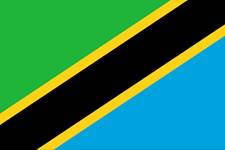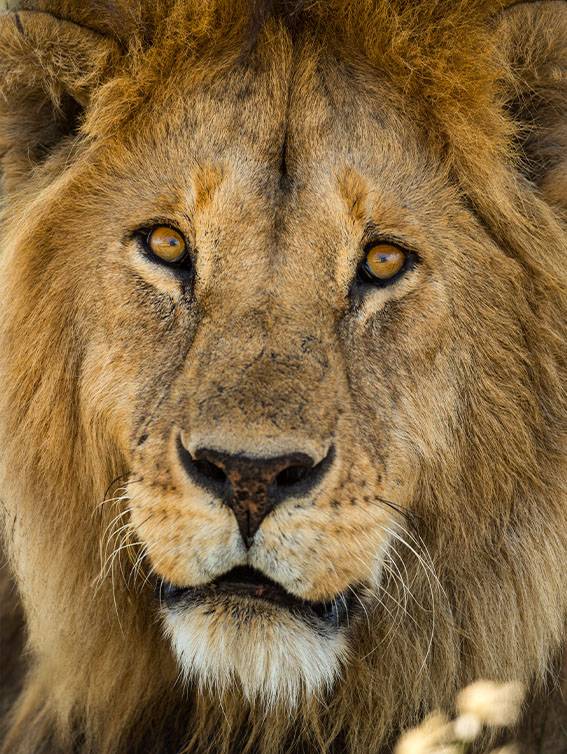TANZANIA
Karibuni- Welcome
In Tanzania we provide international relocations by sea and air, pet relocation, local moves, office moves and storage. We also provide an essential import and export service by sea and air, for international AID agencies. The longest established and most trusted mover in Tanzania.
OUR TEAM
Worldwide Movers Africa (Tanzania) was the first country to be established by the Group over 30 years ago. We are very proud to celebrate our 30 year milestone.
Founded on customer service, hard work, dedication and staff training our business continues to grow and has an excellent reputation for good communication and quality of service.
Our dedicated team are knowledgeable, experienced and have extensive removal skills. We have comprehensive export/import, freight and customs formalities abilities.
Our team attend annual workshops and overseas conferences with agency network partners. We are proud of our reputation as Africa’s Gold Standard of the relocation industry.

Eric Beuthin
Director and Group CEO
Eric has had a lifelong passion for the group and took over as CEO when his father Bill retired. He worked in Uganda before moving to Tanzania where he again aims to gain FIDI accreditation. Eric's focus is on strategy, the future, quality and growth.

Cletiuce Sowa
Manager
Cletiuce has worked with us for many years. His integrity, hard work, initiative and ability have seen him progress to Manager. He is now in charge of the day to day running of the business.

COUNTRY PROFILE

Population: Approximately 66 million people.
Capital: Dodoma. Dar es Salaam is the largest city and the main Port of Entry.
Language: Swahili is the official language.
English is widely used in government, business and higher education.
Govt: Presidential representative democratic republic.
The President is both head of state and head of government.
They are elected by popular vote for a maximum of two five-year terms.
GDP (Gross Domestic Product): Tanzania's GDP is around $75 billion.
GDP per Capita: The GDP per capita is approximately $1,200.
Currency: The Tanzanian Shilling (TZS) is the official currency.
The United Republic of Tanzania, the largest country in East Africa is bordered by Kenya and Uganda (north), Rwanda, Burundi and the DRC (west), Zambia, Malawi and Mozambique (south), and the Indian Ocean (east).
Tanzania was named after the mainland Tanganyika and the Zanzibar Archipelago united in 1964. Tanganika gained independence from the British in 1961, while Zanzibar remained a semi-autonomous region. Since 1964, Tanzania has had a relatively stable political environment. In 2021 Samia Suluhu Hassan became the first female president in East Africa.
Tanzania's economy is mainly agricultural and this employs the majority of the population. The country has valuable natural resources, including gold, gypsum, gemstones and the rare Tanzanite. Tourism plays a crucial role in the economy with amongst others: Mount Kilimanjaro (the highest free-standing mountain in the world), the Serengeti National Park (famous for the annual migration of wildebeests), the Ngorongoro Conservation area (UNESCO World Heritage Site, famous for its crater and its wildlife) and of course the Zanzibar Archipelago (Unguja and Pemba Islands) with its white sandy beaches.
Tanzania has more than 120 ethnic groups from diverse origins: Bantu, Nilotic, Cushitic, Omani, Persian, etc.
During the colonial period immigration from India was encouraged. The European population, never large because Tanganyika was not a settler colony, was primarily English, German, and Greek. This diversity makes Tanzanian culture rich and intricate.
The United Republic of Tanzania has a reputation for religious tolerance and coexistence. Most of the population is Christian or Muslim, while the rest follow indigenous belief systems. Religious freedom is enshrined in the country's constitution and the government upholds secular principles.

FURTHER INFORMATION
Tanzania has a competitive telecommunications sector with many mobile phone and internet service providers. Mobile Phone Service Providers include amongst others: Vodacom Tanzania, Tigo Tanzania, Airtel Tanzania, Zantel, TTCL, etc. Internet providers inlcude: Zuku, Gofiber, Raha, Smile, etc.
Our City Orientation Tour provides a safe and friendly way to get to know your new home. We help you to find what you need and make your initial settling-in period a little easier. We are happy to drive you and show you some key places. Or, you can drive your own car to get used to driving in local city traffic.
Minibuses, "dala-dalas," are used for both short and long distances and operate on fixed routes within cities and towns as well as between major cities and regions. They can be hailed on the street along their routes.
Taxis/Uber or Bolt drivers are widely available in urban areas and can be hailed on the street, hired from taxi stands or booked using their app.
Boda-bodas, or motorcycle taxis, are good for quick, inexpensive trips within cities and towns, especially in congested urban areas. However, it remains a dangerous mean of transport and you should buy your own helmet before using one of them.
Bajajs, three-wheeler Tuk-tuks, offer a convenient and affordable way to travel short distances around town. They can be found at specific Bajaj spots within the city or can be hailed on the street.
The Tanzania Railways Corporation has recently restarted passenger trains between Dar es Salaam and Dodoma, the line will eventually extend to Tabora and Mwanza with both day and overnight services.
Ferries run between the mainland (Dar es Salaam, Tanga, etc) and nearby islands, such as Zanzibar, Pemba and Mafia. The ferries carry both passengers and cargo. Check the length of the journey before purchasing your ticket though!
Several domestic airlines have flights between major cities and towns across Tanzania. Air travel is a good way for cover long distances, especially to remote areas, islands or national parks.
You can rent a car in major cities and towns if who prefer to explore independently. It's essential to be aware of driving conditions, road signage, and local driving customs.
Lots of people walk and it's a great way to explore local markets and attractions at a leisurely pace.
Tanzania has options to suit different preferences, budgets, and needs. Consider safety, comfort, and convenience.
Dar es Salaam, Arusha, and Zanzibar host diverse expat communities.
Oysterbay and Masaki (Msasani Peninsula, Dar es Salaam) offers upscale and luxurious housing options (houses and Apartments), good security, quiet streets, and proximity to amenities like the Yacht Club, restaurants, bars, shops, supermarkets, and international schools.
Upanga (Dar es Salaam) has a mix of residential and commercial properties and has central and relatively affordable housing options (mainly big apartment buildings).
Mikocheni/Mbezi/Kawe (Dar es Salaam) offers residential (mainly houses), relatively affordable housing along the northern coast of Dar es Salaam. It is close to international schools and amenities, such as restaurants, bars, shops and supermarkets.
Ada Estate (Dar es Salaam) with its quiet leafy streets and family friendly atmosphere offers a range of housing options, from apartments to standalone houses.
Arusha (Various neighborhoods) is relatively close to Mount Kilimanjaro and the Serengeti. Areas like Njiro, Sakina, and Sekei have good housing options and amenities.
Stone Town (Zanzibar), the historic and cultural heart of the island, offers a unique living experience with its narrow streets, historical architecture, and vibrant atmosphere. It is safe and offers a mix of town or standalone houses and apartments.
Moshi (Various neighborhoods) is at the foot of Mount Kilimanjaro. Rau and Shanty Town have a range of housing options and amenities and the leafy street offer a quiet and welcoming environment.
Tanzania has many international schools which follow recognised curricula, such as the International Baccalaureate (IB), the British, American, or French educational systems. You will find below a list of some of them with links to their websites:
The International School of Tanganyika (IST) , Dar es Salaam, Primary school campus in Upanga and Secondary school campus on Msasani Peninsula. International School of Tanganyika
The International French school Arthur Rimbaud, Dar es Salaam, campus in Masaki. International French School
Haven of Peace Academy (HOPAC), Dar es Salaam, based in Sala Sala, north of Dar es Salaam. Haven of Peace Academy
Aga Khan Schools, Dar es Salaam, campus in Upanga. Aga Khan Schools Tanzania
Braeburn International School, Dar es Salaam, based in Mbezi, north of Dar es Salaam. Braeburn International School
Dar es Salaam International Academy (DIA), Dar es Salaam, campus in Ada Estate. Dar es Salaam International Academy
United World College East Africa, Moshi and Arusha Campus (formerly the International School of Moshi), based in Moshi. United World College East Africa
The international School of Zanzibar, Stone Town. International School of Zanzibar
Consider the curriculum offered by the school and whether it aligns with your child's educational needs and future plans.
Check the school's facilities, resources, and extracurricular activities to ensure a well-rounded education.
Aim for accommodation and schooling within a sensible commute!
Health Precautions:
Be aware of local health risks.
Have all the necessary vaccinations.
Drink bottled water, do not use/drink tap water (even when brushing your teeth).
Be aware of mosquitos as malaria, dengue fever, etc are common in major cities and towns. Use mosquito repellent and wear long, ample clothing to avoid being bitten.
Most medication can be purchased in Dar es Salaam. However, specific medications might need to be purchased abroad (carry your prescription with you when coming back to Tanzania). Carry necessary medications when traveling within the country.
Dar es Salaam boasts several good modern hospitals: Aga Khan Hospital, Safee Hospital, IST Clinic, London Health Center, etc. Get to know the location of the closest local medical facility.
Health services can become problematic when leaving the economic capital.
Subscribe to an emergency evacuation scheme (with Air evacuation).
Stay safe, be aware of your surroundings and take precautions.
Research: Learn about the city and its safe areas. Stay updated on local news and events, travel advisories or safety alerts issued for the city or by your Embassy.
Accommodation: Use reputable well-reviewed accommodations. Look for good security measures. Use reliable booking platforms to ensure your reservation is legitimate.
Transport: Use licensed and reputable transport options (green and white taxis/Bolt/Uber). Avoid traveling at night and use well-lit and busy routes. Do not walk at night.
Avoid Risky Areas: Be cautious in unfamiliar or poorly lit areas, especially at night.
Personal Belongings: Keep your belongings secure. Use anti-theft backpacks or money belts. Do not wear/carry flashy jewellery, expensive gadgets and large amounts of cash when walking in town.
Contacts: Contact locals or expats who can give you guidance. Share your plans with someone you trust. Know the local emergency numbers (police 112, medical 114, fire 118). Carry a list of contacts, including the nearest embassy or consulate.
ITC: Use secure Wi-Fi connections and consider using a VPN. Keep your devices charged and have a backup power source.
Language: Learn some basic phrases in Swahili, especially those for seeking help or directions.
Cultural Sensitivity: Respect local customs and traditions. Dress modestly in areas where it is appropriate.
Trust Your Instincts: If a situation feels uncomfortable, remove yourself from it. Trust your instincts and be cautious about accepting invitations or assistance from strangers.

FAQS
Moving costs are based on factors such as:
The volume and weight of your belongings
Whether your belongings are being shipped by air, sea or road (or a combination)
Your origin and destination
Any special requirements you have such as crating for art work
Ease of access to your property
Additional services requested
Please provide our surveyor and operations manager with as much information as possible.
We use the assessment made by our surveyor and the information you provide to calculate your quote.
As each move is unique our service usually begins with a survey. Our surveyor will estimate the volume of goods to be shipped and the materials needed. He will listen carefully to any special instructions or requests you may have. He will also make an assessment of the property checking for any access issues (narrow gates or height restrictions) and look at lift access and staircases.
We have teams of highly experienced professional packers
We use high quality and appropriate materials to protect and pack your belongings
* You should not pack your own belongings
Many countries will not allow entry of goods that have been packed by their owners (PBO). This ensures no prohibited items are shipped with your belongings.
Any boxes labelled PBO are very likely to be opened and searched by customs officials
Our teams will produce a detailed packing list which they will ask you to sign
We do not ship prohibited goods, such as:
Ivory or furs, drugs, weapons, hazardous materials or perishable items.
Each location has its own export and import regulations. Our teams will be able to advise.
We do not pack keys or passports (you will need those)
It is recommended that you carry any small high value items, such as jewellery, rather than having it shipped with your goods
Your normal household insurance is unlikely to cover your goods in transit.
We offer protection cover for your move including marine insurance.
Your shipment may be insured by your origin agent if you are importing your goods to us.
It is very important that you complete a detailed valued inventory of your goods as one box may contain items of much greater value than another.
Please read our terms and conditions for information on liability.
It helps if you are organised.....
Make sure you have applied for any visas or permissions you will need and have your passports up to date and ready
Dispose of or sell any items you do not wish to take
Separate items to be shipped from those to remain
Separate items to be shipped by air and those to be shipped by sea (if appropriate)
Label or attach stickers to the items to be packed
Organise school books or your children's much loved toys
From start to finish the entire moving process has a number of steps:
Survey - please book your survey as far in advance as is practical
Quote - once your survey is done our team will contact shipping line and destination agents. Once all this information is in and collated we can provide you with a quote/estimate.
PLEASE NOTIFY US OF ANY CHANGES
Packing dates - we can be very busy especially at peak packing time in the summer months. We will always aim to pack on or close to your preferred dates when possible
Transport to port
Export clearing
Loading onto shipping vessel
Transit by sea or air - this can take a day to several weeks. We can give an estimated time of arrival (ETA) to help you with planning. However, many things affect the transit time and are out of our control: technical issues, weather, international incidents, port congestion etc. Your shipment is tracked and the ETA adjusted accordingly.
Offloading from the vessel
Import clearing
Transport to storage or your new home
Unpacking and debris removal
We will provide you with a comprehensive and detailed quote for our services which should highlight any exclusions.
DUTY AND TAX: Customs/import duty is imposed when people bring goods into a country. Duty can vary widely depending on the country and its specific customs regulations. Personal belongings and household goods are sometimes duty free or have a reduced rate. Exemptions or reductions may apply to some individuals, such as expatriates on short-term assignments and diplomats. Depending on the country there may be other taxes and levys charged on your shipment.
A customs declaration including a detailed inventory, packing list, and relevant identification documents is crucial for smooth customs clearance. Some countries may require additional documents, such as a visa, work permit, or proof of residence. We can provide guidance on the documentation required and potential duty implications.
DEMURRAGE: Demurrage is charged by a shipowner for any delay in loading/unloading a vessel or returning the container beyond the allowed free time. Delays can arise for many reasons including port congestion, customers not presenting the required paperwork on time etc
Free time is generally about 5 days for an air import and 7 days for a sea import (including weekends and holidays). Charges are calculated on a daily rate for each day beyond the free time.
We are unable to include demurrage charges in our quote as they vary. You, your origin agent or your company are usually responsible for paying demurrage. It is important for us to know who to contact so that they can be paid efficiently, the container is released and further unnecessary charges are not incurred.
OTHER
Inspections - Your shipment may be selected for inspection or X-Ray by officials for which there will be an additional fee.
Storage - We are able to store your household goods for you if for example your new home is not ready. We charge warehouse handling and storage for this service.
Handyman - We offer other services such as a handyman if you need other work such as putting up curtains, electrical work, assembly of IKEA furniture and so on....
Out of Hours - Additional may be incurred if you require us to work after hours, on weekends or public holidays.
International relocation of pets involves careful planning and adherence to regulations to ensure the safety and well-being of your furry friends.
We have moved many pets all over the world including USA, UK, many EU countries, New Zealand, Australia, Cyprus, Thailand, Singapore....
Pet import requirements and regulations vary and some countries have strict rules and timelines to which you must adhere.
Ensure that your pet has a compliant microchip registered with your contact information.
Visit your veterinarian well in advance and ensure your pet is up-to-date on all vaccinations required by the destination country. Give parasite treatments according to the regulations of the destination country. Obtain a health certificate issued by a licensed veterinarian shortly before travel.
An import permit may be required by the destination country. Obtain the necessary permits and ensure compliance with any waiting periods. Be aware of any quarantine requirements in the destination country.
You will need an IATA and airline-approved travel crate that provides enough space for your pet to stand, turn around, and lie down comfortably. Familiarise your pet with the crate before travel. Include familiar items like blankets or toys in the travel crate (but no choking hazards). Ensure access to water and any necessary medications during the journey.
We organise the door-to-door relocation of pets, from collection at your residence, booking with the airline, airport procedures and processing, arranging a destination agent and hand over or delivery to your new home. We select an airline we trust with experience in transporting pets. We consider the travel time, any transfers and their location so that we choose the best route for the comfort and safety of your pet/s. Some airlines have specific pet travel programs.
You will need to provide original copies of all your pets documents. We will also need your old and new address and contact information.
NB: Do not give your pet any sedative or calming medications/supplements - these can have devastating affects at altitude. We will refuse to ship your animal if we suspect it is sedated.
We can also relocate other animals and always adhere to regulations. If your pet is CITES listed you will need to provide the correct paperwork.
TESTIMONIALS
Dear Charles and William,
We would like to thank you, all of you, for the very good job you have done. Your team, this morning, was efficient and competent. We will have the pleasure to work with you again. Thank you very much.
Kindest regards Helene

Why Choose Us?
With over 30 years of experience on the African Continent, Worldwide Movers Africa has the knowledge and dedication needed to successfully move your belongings.
CONTACT THE TANZANIA TEAM
Contact Details
Email: sales@wwm.co.tz
Tel: +255786337711
Eric Beuthin: eric.beuthin@wwmaf.co
Postal Address
P.O. Box 2486
Dar Es Salaam
Tanzania
Courier
Worldwide Movers Tanzania Ltd
Plot 45, New Bagamoyo Road
Makumbusho area
Kijitonyama
Dar Es Salaam
Tanzania






























